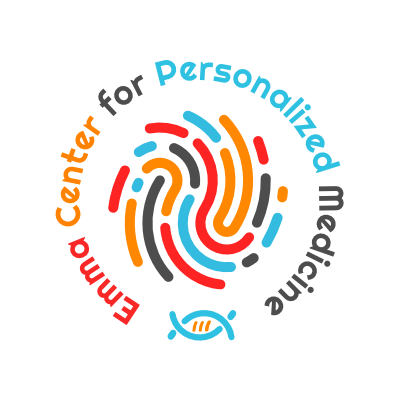Tackling the Challenges of Rare Genetic Disorders
Through Collaborative Care and Research
In an ambitious move, the Departments of Human Genetics and Paediatrics launched the Emma Center for Personalized Medicine in 2022, a visionary project led by Professor Mieke van Haelst and Professor Clara van Karnebeek. This initiative seeks to accelerate innovation in translational research and improve personalized care and treatment for patients with rare genetic disorders.

With substantial funding by the Sector plans from the Ministry of Education Culture and Science, earmarked for supporting clinical and translational research, particularly in personalized medicine, 11 (senior) University Lecturers were appointed as permanent assistant or associate professors at the Emma Center for Personalized Medicine (CPM) in 2022/2023.
“This step allows our top talent the stability and resources they need to advance research and education in the field of personalized medicine,” says Professor Mieke van Haelst, Head of the section Clinical Genetics of the Department of Human Genetics. “They have the expertise needed to make the Emma CPM wheel of innovation turn faster.”
The new assistant and associate professors focus on research and teaching in specialized areas of health sciences and technology. These include metabolic, eye, neurodevelopmental and food satiety disorders and technologies, such as model systems, phenotyping, biomarkers, drug screening, RNA/gene editing, biobanking, databases, clinical trials, and artificial intelligence. They receive support and guidance from principal investigators.
“Bringing these diverse expertises together creates an environment ripe for cross-pollination, with a strong emphasis on collaboration and synergy,” says Prof. Van Haelst. “This integrative approach is the core strength of Emma CPM.”
Bringing Hope to Families
Fueled by advances in sequencing technologies and gene therapies, the discovery of both the underlying genetic defects and opportunities to treat rare genetic disorders are drastically increasing. However, translating these discoveries into clinical practice remains challenging, often resulting in delaying establishing final diagnoses and limited access to novel therapies.
“We want to realize the dream of treating every child with genetic disease as early as possible. Precise and faster diagnostics leads to earlier intervention and personalized therapy, helping to ease the suffering of patients and their families and mitigating lifelong disabilities.”
Professor Mieke van Haelst, Head of the section Clinical Genetics of the Department of Human Genetics
A Sustainable and Ethical Approach
According to professor Van Haelst, ensuring ongoing access to this specialized care is critical but challenging. Emma CPM addresses this by deeply embedding valorization and ethical considerations into its framework, responsibly applying digitalization, big data, and artificial intelligence both in research as well as in in patient care.
Moreover, the center places a strong emphasis on effective communication, which includes a comprehensive educational initiative aimed at equipping the next generation of healthcare professionals and researchers. It also focuses on raising public awareness about the benefits and implications of Personalized Medicine.
“We can only achieve our mission through collaboration with colleagues and patients locally, regionally, and internationally,” notes co-director Clara van Karnebeek, Professor of Personalized Medicine and Genetic Metabolic Diseases at Amsterdam UMC who leads the Sector plans.
Clinical Genetics Outpatient Clinic / Reducing Wait Times and Enhancing Care
During 2023, our staff members at the Clinical Genetics worked together to reduce the Outpatient Clinic wait times. Previously, patients and families often faced wait times of over six months, and in some cases, up to one year. Challenges such as restructuring of care locations, renovations, and the pandemic have exacerbated this situation.
Despite these obstacles, through the collective efforts of all team members of the Clinical Genetics Section, patient wait times have been reduced for the first time in years, in most cases more than 50%. After an agreement was reached and the necessary support was organized, our genetic counselors can now accommodate 900 additional patients per year. “Our next objective is to stabilize the wait times, alleviate workload, and enhance a good work-life balance,” concludes Prof. Van Haelst.